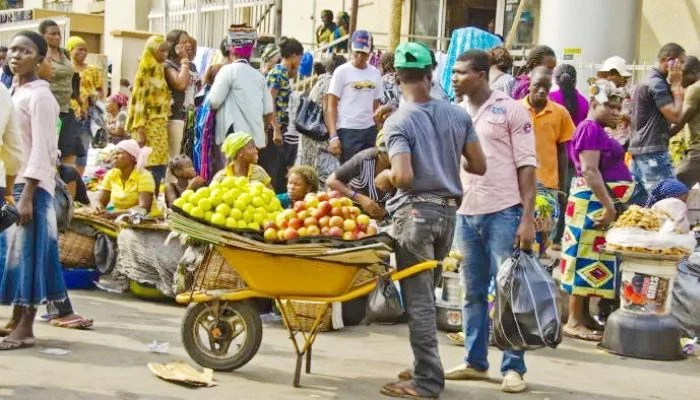Although wages are generally stagnant in Nigeria, the cost of living is growing higher every month as the value of the local currency gets eroded. When the federal government announced in 2019 the adoption of a new minimum wage, the value of the naira was more than 2 times stronger than what it is currently.
Since Nigeria is a net importer of many consumption goods, including agriculture products, and the value of the naira has grown weaker against other currencies, Nigerians’ purchasing power has been on a one-way lane, southward.
This has no doubt impacted 63 per cent (133 million) Nigerians being multi-dimensionally poor, which is an index that captures the percentage of households in a country deprived along three dimensions of well-being – monetary poverty, education, and basic infrastructure services – to provide a more complete picture of poverty.
Today, the national minimum wage, N30,000, is only 60 per cent the cost of a bag of rice, which currently sells for N50,000. Noteworthy is the fact that not all states pay the national minimum wage.
Then there are costs related to living such as healthcare, education, sanitation, housing, to name a few.
Understandably, both salary earners and self-employed citizens are complaining that their earnings rarely meet up with family demands including feeding, health, education and housing.
Data released by the National Bureau of Statistics (NBS) indicated that inflation rose to 20.77 per cent year- on- year in October.
The latest rise in inflation was triggered by the highest increases recorded in the prices of gas, liquid fuel, solid fuel, passenger transport by road, passenger transport by air, garments, cleaning, repair and hire of clothing.
The NBS revealed recently, in its Consumer Price Index (CPI) report for October, noted that food inflation was 23.72 per cent in October 2022, from 23.34 per cent in September 2022
The global cost of living index tracking firm, Numbeo, estimates that the normal cost of living for a family of four is estimated to be N754,484.35 without rent. A single person estimated monthly costs are N206,540.60 without rent.
The implication is that Nigerians are forced to adjust to lack as the new normal virtually every week as their purchasing power reduces.
The toll is especially being felt in rural Nigeria where about 72 per cent of the rural population is poor multi-dimensionally.
Economist and social affairs analyst, Paul Bowie told NATIONAL ECONOMY that it is not only bad that Nigerians are getting poorer in terms of purchasing power, but also that the development has a long-term effect on health, education, and other social amenities. He said the developmental strides made in the past are being eroded by poverty.
Professor of economics, Gbenga Gbangbose, also told NATIONAL ECONOMY that the reduced standard of living has the propensity to cause social strife in the country. He said, “We live in a global village; people know what life was like just a decade or two ago; people see how people in other climes live, and when they can’t enjoy such similar standard of living at home they will naturally revolt.”





